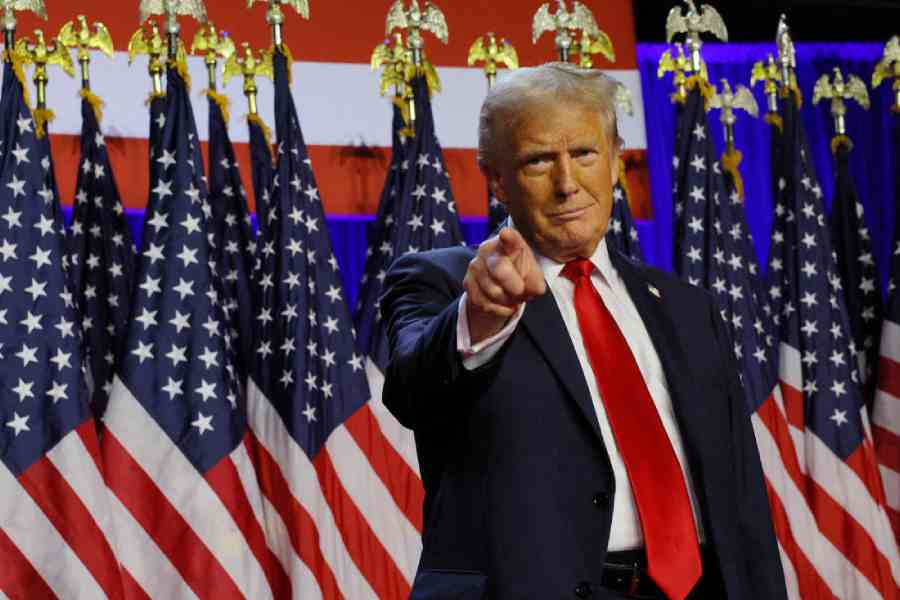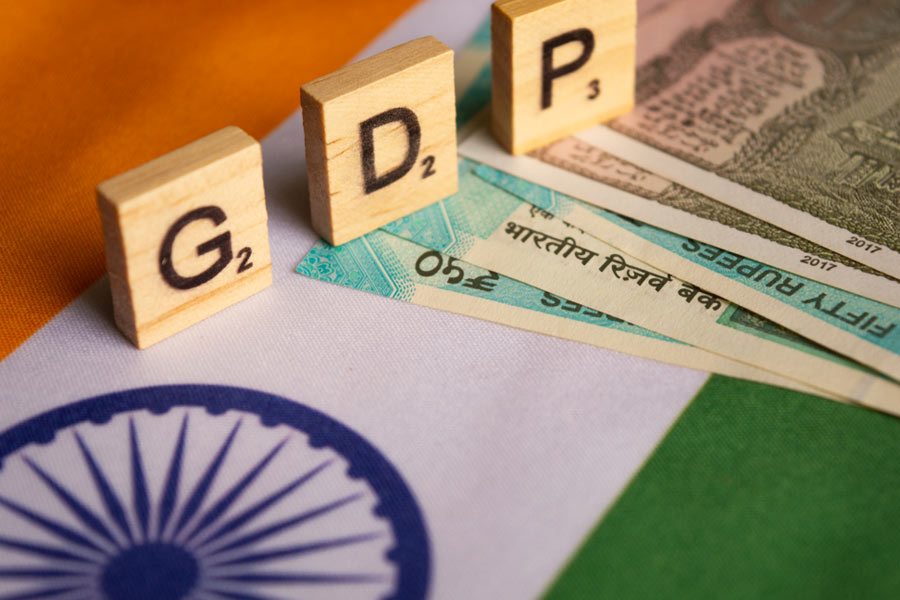Too much need not be made of the compliments that Donald Trump and Narendra Modi have been lavishing on each other. The 47th American president’s roller coaster relationship with Kim Jong Un is a good example of the ephemeral nature of all such partnerships.
If routine compliments flatter India’s leaders into going overboard, especially when the foreigner paying them is white, it’s only because of what Modi has called in another context, “bara sau saal ki gulami”, twelve hundred years of slavery. East Asians are not as crippled by complexes as South Asians. A second misapprehension to bear in mind is that Trump’s United States of America will present the world with an array of dazzling new challenges in Europe, Asia, Oceania and the digital ether. The old televised quip, ‘It’s the economy, stupid’, is far more relevant to developments. As Richard Nixon warned Bob Dole, a Republican presidential hopeful, some months before his death in April 1994, “If the economy’s good, you’re not going to beat Clinton.” More of that later.
Kim was for a long time Trump’s derided “Little Rocket Man”. Then in 2018, Trump officially met the North Korean leader for the first time in Singapore and the following year became the first US president to visit the modern world’s ‘hermit kingdom’. The two men reportedly kept up a brisk correspondence, exchanging no fewer than 27 letters. Even more surprisingly, Trump claimed that he got “along with him [Kim]” and that Kim would “like to see me back too. I think he misses me, if you want to know
the truth.”
However, the hard-headed North Koreans threw cold water on the suggestion of a bromance, issuing a statement via the Korean Central News Agency claiming, “Even if any administration takes office in the US, the political climate, which is confused by the infighting of the two parties, does not change and, accordingly, we do not care about this.” Pyongyang also stated that although Trump “tried to reflect the special personal relations between the heads of states,” he did not inspire “any substantial positive change” either domestically or in bilateral ties.
This lukewarm response must be remembered even as the world acclaims what is presented as a historic turn. True, Trump’s election was not a fluke: but however decisive his victory may appear to be, securing more than 70 million votes and winning the popular vote for the first time in three attempts highlight not his international skills or statesmanlike stature but the domestic weaknesses that the system allowed him to exploit. This will be further underscored if Trump’s Republican Party, which now runs the Senate, secures control of the House of Representatives, as it is expected to do within days. It follows that the Supreme Court will appear even more Trump-friendly in the next four years, strengthening the effect of a stunning comeback by a brilliant strategist who is being hailed as “among the most consequential American presidents since Franklin D. Roosevelt” even weeks before he has been sworn in.
Perhaps this outcome should have been foreseen months ago when the accomplished and highly educated Kamala Harris was asked what she would have done differently from the incumbent president, Joe Biden. “Not a thing comes to mind” was her lame and unimaginative answer. It was immediate grist to the Republican mill which tethered her candidacy to the disastrous debate performance that had already sealed the fate of Biden’s campaign. If this was the fault of the Democratic Party establishment, it must be said that the octogenarian president clung to office with a grim tenacity that Indian politicians would envy. When, at last, public opinion, the fear of falling donations and high-powered pressure forced the president to yield, there was little time left for Harris. Anointed to the top of the ticket bypassing the scrutiny of a primary without a single vote being cast, she plunged at once into her 100-day campaign promising a “new generation of leadership”, rallying women around abortion rights and vowing to win back working-class voters by focusing on economic issues, including rising costs and housing affordability.
With just three months until election day, she managed to generate a wave of initial momentum, which included a flurry of memes on social media, a star-studded endorsement list that included Taylor Swift and a record-setting donation windfall. But Harris couldn’t shake the anti-Biden sentiment that permeated much of the electorate whose approval rating for a lacklustre president had consistently hovered in the low 40s throughout his four years in office.
Loyalty obliged her to walk a fine line of addressing the administration’s record without casting doubts on her boss, showing a reluctance to break with any of Biden’s policies while also not outwardly promoting them on the campaign trail. But she then failed to deliver a convincing argument about why she should lead the country, and how she would handle widespread concerns over immigration as well as economic frustrations that propel all such politicians, whether Trump in the US or our own Modi, Benjamin Netanyahu in Israel, or Hungary’s longest-serving prime minister, Viktor Orbán. Some think that another nationalist populist, France’s Marine Le Pen, might try to play the same card to secure the presidency in 2027.
Trump’s real winning formula was the economic discontent that in India drives thousands of gifted young men to migrate every year, in the process losing all their money and sometimes their lives. About three in 10 American voters complain that their family’s financial situation is falling behind, an increase from about two in 10 four years ago, according to data from AP VoteCast, a survey of more than 120,000 US voters conducted by NORC at the University of Chicago. Nine in 10 voters were very or somewhat concerned about the price of groceries. The same survey found that four out of 10 voters said immigrants living in the US illegally should be deported to their country of origin. This was up from around three in 10 who said the same in 2020. No wonder Trump gleefully threatened Latinos and Hispanics with “the largest deportation programme in American history”. In the Indian context, he might have dismissed them as ‘termites’.
As for policy innovations, speculation about an isolationist withdrawal from the world’s stage does scant justice to a prima donna who forcefully recalls Ronald Reagan’s reported reply when asked if an actor could be a politician. “Show me one who wasn’t”, he is believed to have said. Trump’s last tenure was not noted for his reticence. A president who laps up a Buckingham Palace banquet cannot be a shy touch-me-not. Trump is well aware that discouraging imports of Chinese consumer goods would push up American living costs to unacceptable levels. Also, that no war, not even Russia’s invasion of Ukraine, can be ended in just 24 hours.
There will be minor changes, of course, some cost-cutting here and there, a few sops to feed the vanity of regional potentates who yearn to be patted. But real authority will not be shared. Nor will US supremacy be affected. The alternatives will be like the prospects that Henry Huiyao Wang, founder and president of the Centre for China and Globalization, outlined for the presidential race. “If Trump wins: Higher tariffs but pragmatic cooperation”, he predicted. And “If Harris wins: Status quo with China and more certainty.” Plus ça change, plus c’est la même chose: the more things change, the more they stay the same.











